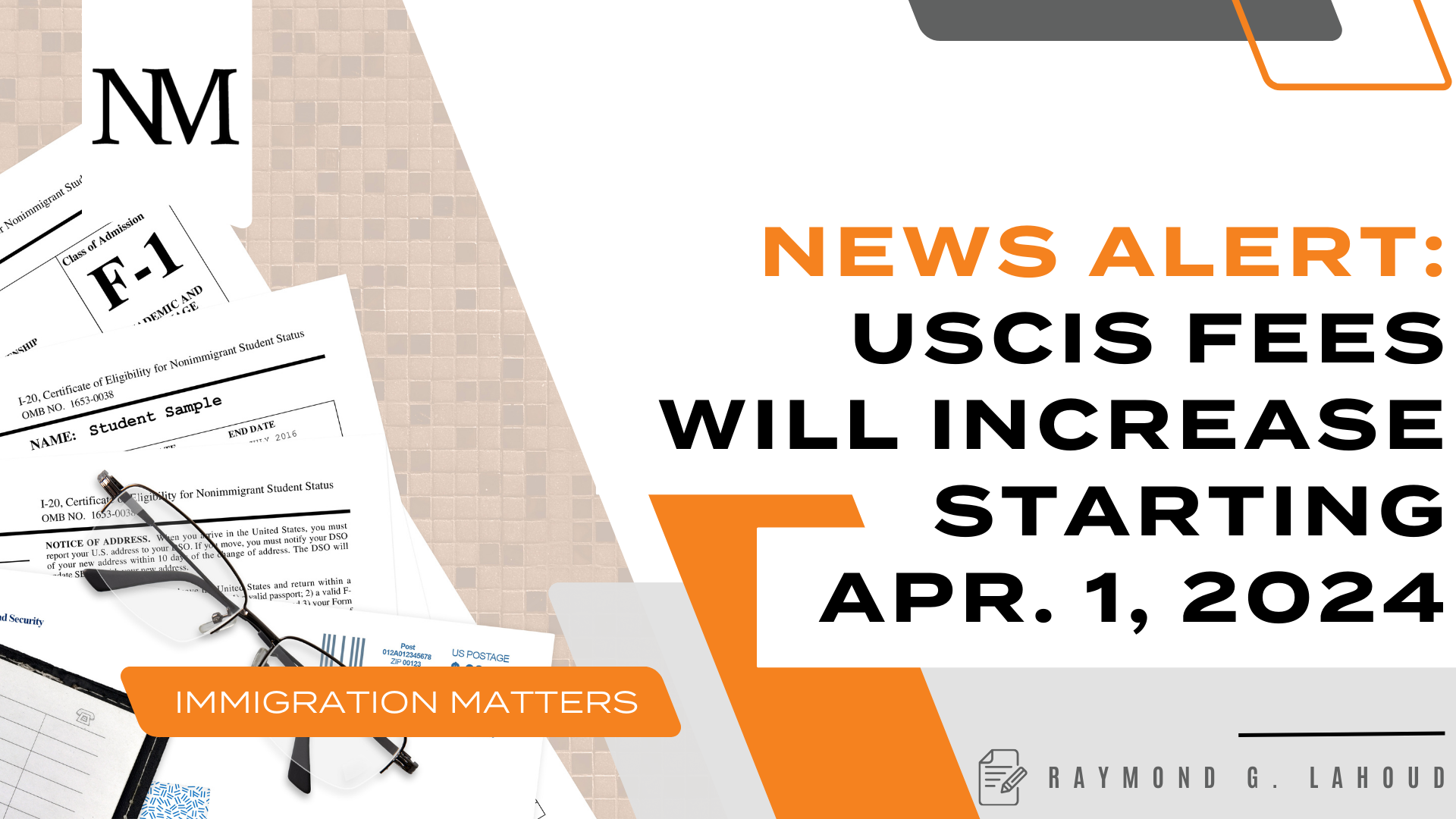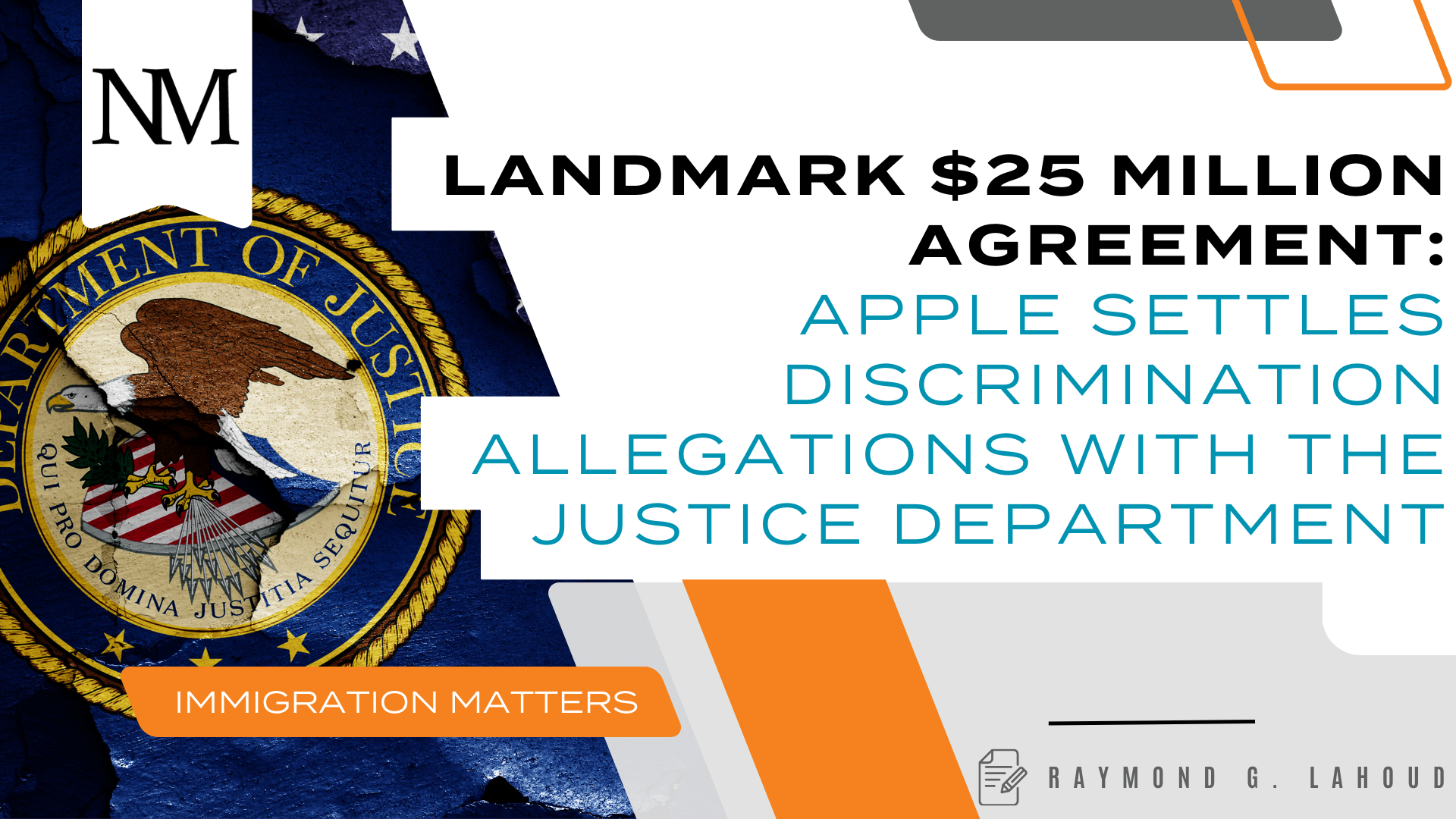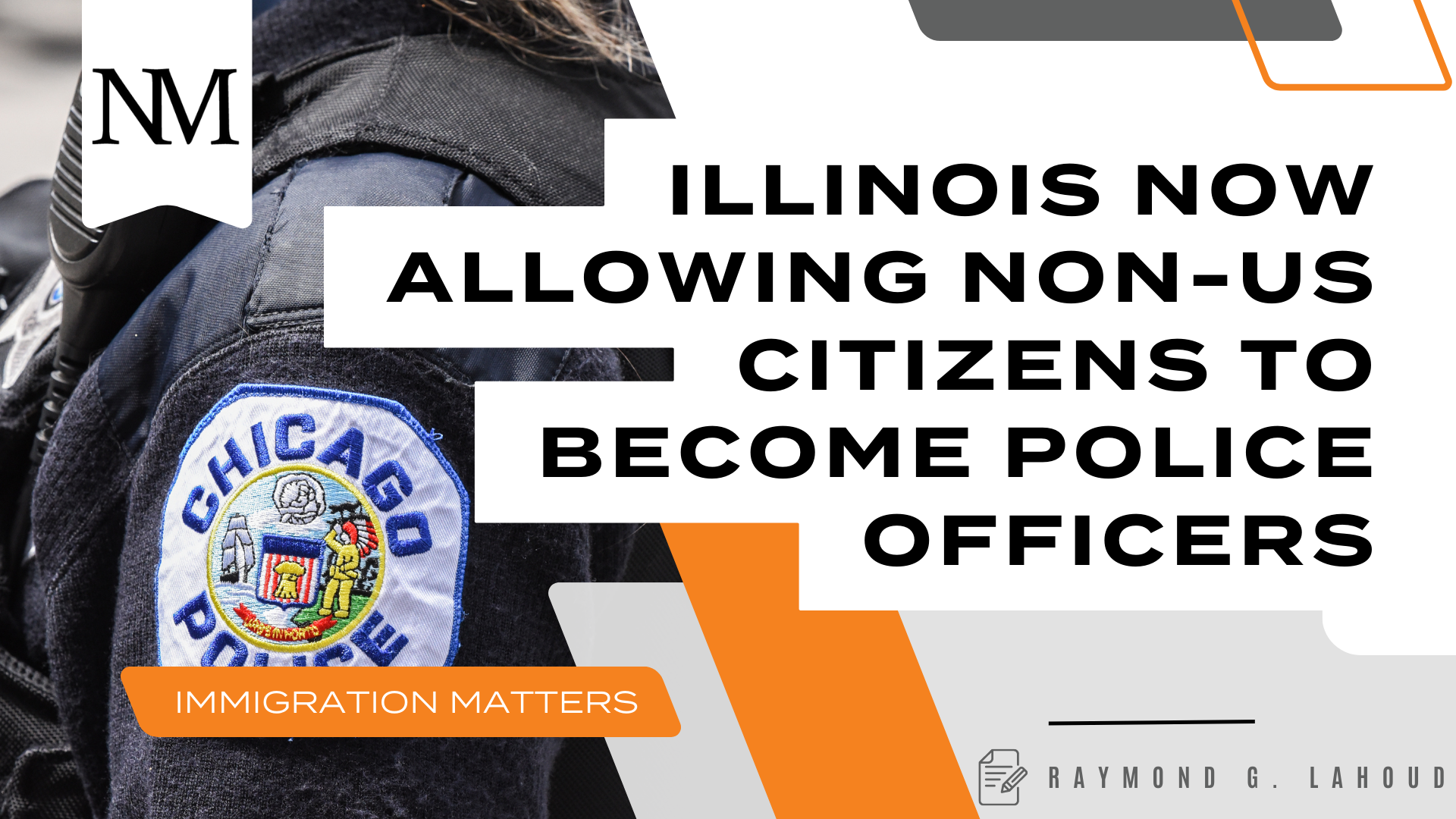DOJ Settles Immigration Discrimination Claim Against National Bakery Chain

The Department of Justice (DOJ), according to its recent announcement, has secured a settlement agreement with national bakery chain Lady M. The settlement resolves the DOJ’s determination that the chain violated the law in the manner it verified the employment authorization of its employees. This announcement highlights the consequences for employers that fail to comply with the Immigration and Nationality Act (the “INA”).
Allegations of Discrimination Against Noncitizen Workers
According to the DOJ, an investigation was initiated after a complaint by a noncitizen employee of the chain. The individual alleged that the company refused to accept his valid documentation proving permission to work in the United States. The investigation concluded that the company engaged in unlawful and discriminatory practices involving the verification of work authorization pursuant to Form I-9, which is discussed below. Specifically, noncitizens were required to show lawful permanent resident cards (or “green cards”) to establish work authorization. At the same time, the company allowed citizens of the United States to choose from a list of acceptable documents. Accordingly, the company imposed an additional burden on noncitizens during the onboarding process, which constitutes unlawful discrimination under the INA.
Under the terms of the settlement agreement, the company will pay an undisclosed civil penalty, train their staff on the anti-discrimination provisions of the INA, and review and update their employment policies. Additionally, the company will be subject to a two-year monitoring period to ensure ongoing compliance with the INA’s anti-discrimination laws.
The I-9 Verification Process
Form I-9, Employment Eligibility Verification, is the standardized form used by the United States Citizenship and Immigration Services (“USCIS”) to verify the identity and legal authorization of all employees who work in the United States. During the I-9 process, the employee must provide their employer with documentation that proves their legal status to work in the United States. The Form provides a list of documentation that is sufficient to establish employment authorization in the United States.
Anti-Discrimination Under the Immigration & Nationality Act
The anti-discrimination provisions of the INA can be found at 8 U.S.C § 1324(b) and its associated regulations at 28 C.F.R. Part 44. The INA provisions prohibit discrimination based on citizenship status and national origin in the hiring, firing, recruitment, and referral of workers for a fee. The provisions also outlaw unfair documentary practices, such as the one involved in this case. Finally, these laws make it illegal to retaliate or intimidate a protected person who files a discrimination-related complaint against the employer. Failure to comply with these laws can result in prosecution, leading to civil penalties and other sanctions.
The Department of Justice Civil Rights Division’s Immigrant and Employee Rights Section (“IER”) enforces the anti-discrimination provisions of the INA. Under the Biden administration, enforcement of these laws has been steady.
Continued DOJ Enforcement of Discrimination Claims
The Biden administration continues its focus on enforcement of the anti-discrimination provisions of the INA to protect vulnerable noncitizen employees from unfair and illegal practices. This settlement is one of many settlements recently announced by the DOJ in their ongoing effort to monitor the compliance of employers hiring noncitizen workers. Accordingly, the importance of compliance with immigration law remains critical for employers in the United States.
To learn more about this blog post, or if you have any other immigration concerns, please feel free to contact me at rglahoud@norris-law.com or (484) 544-0022.




